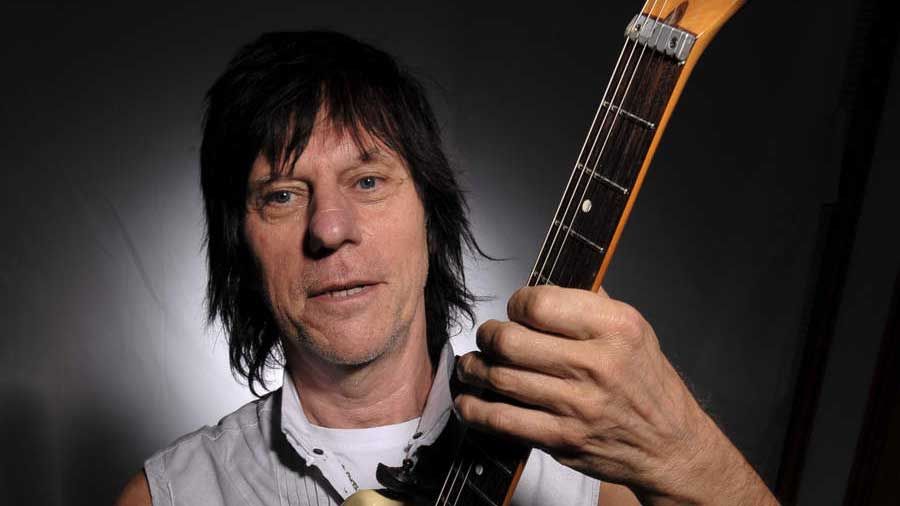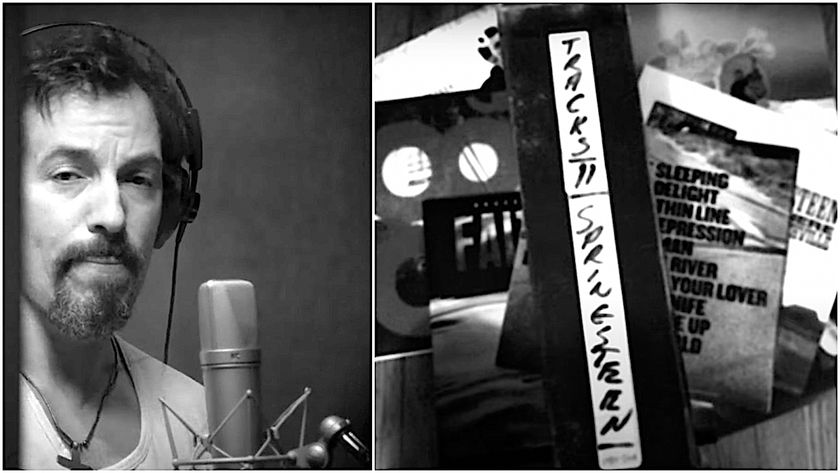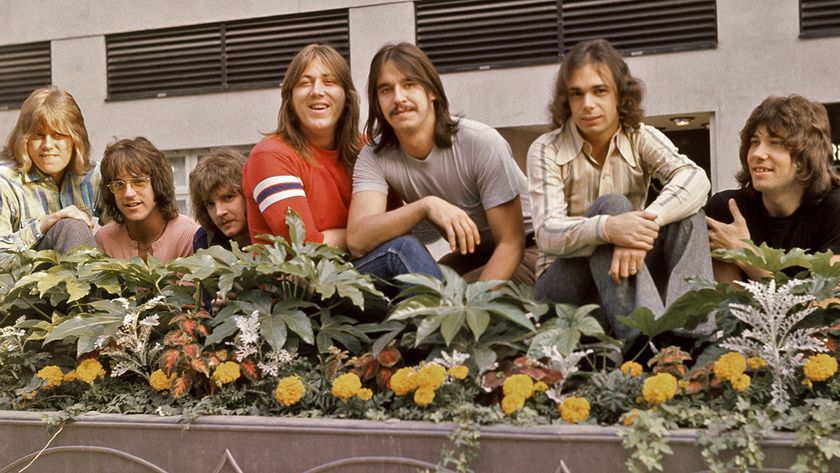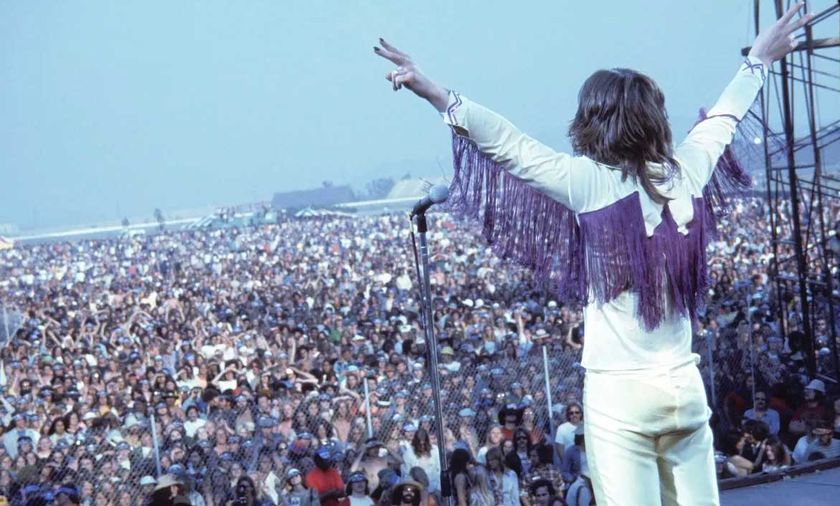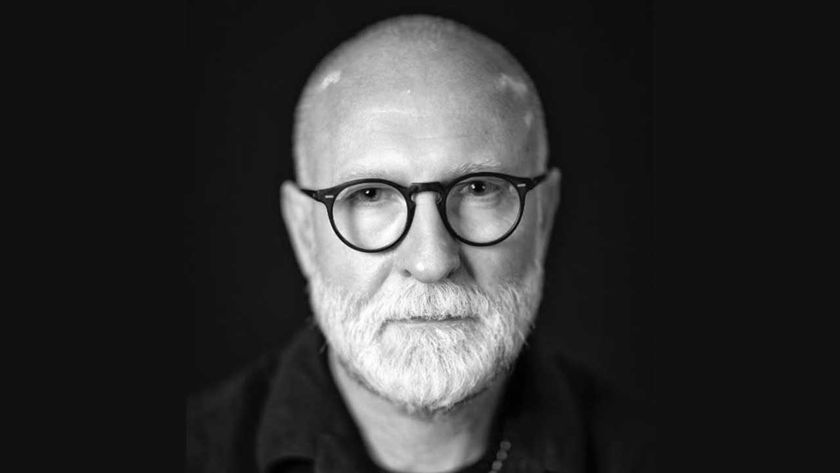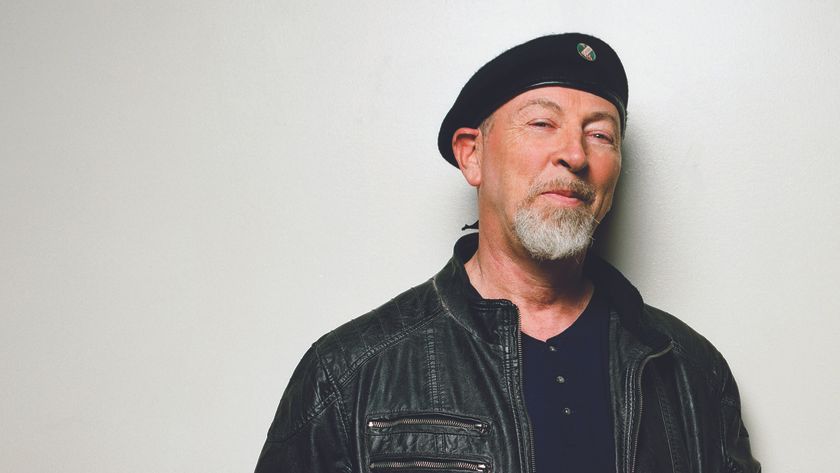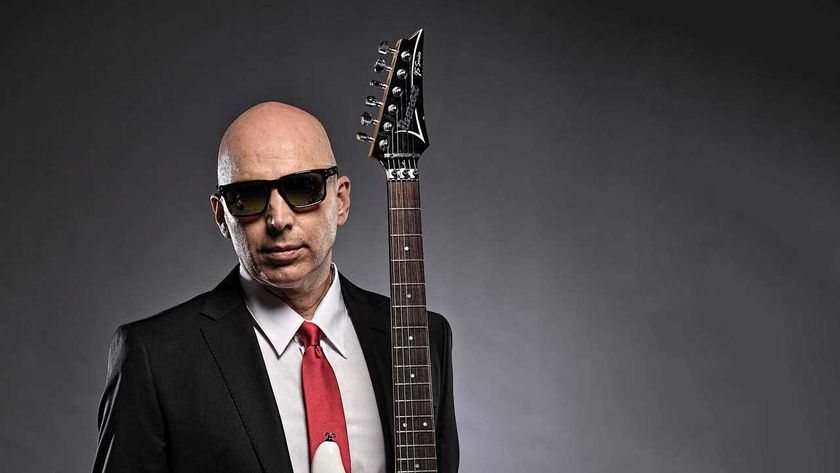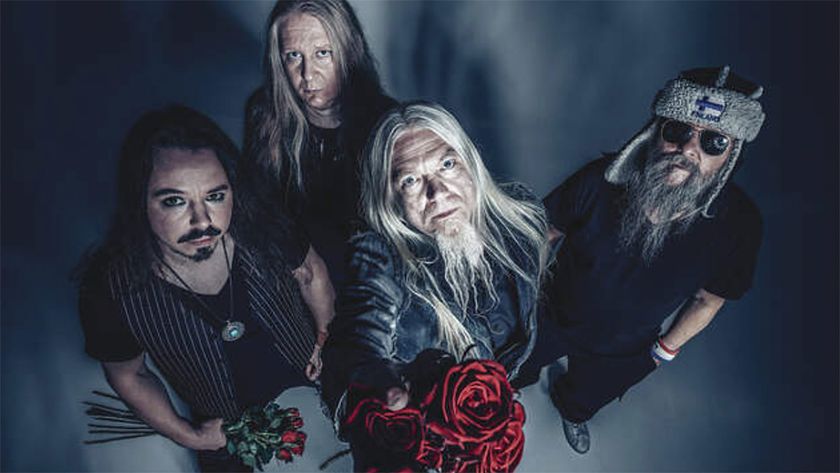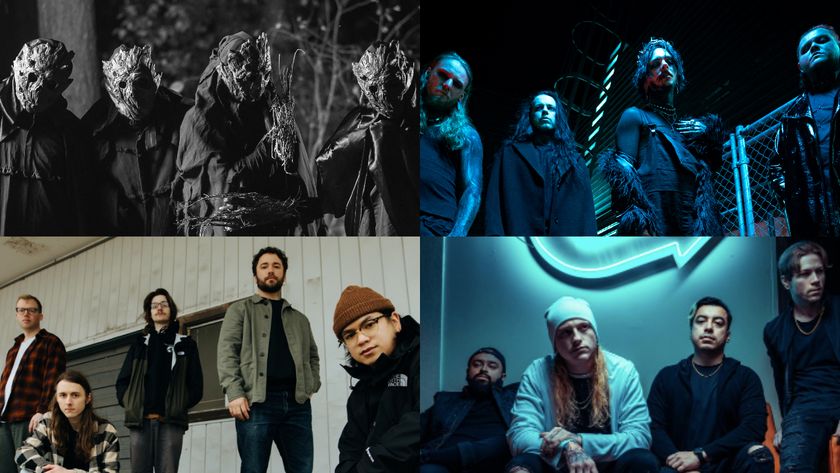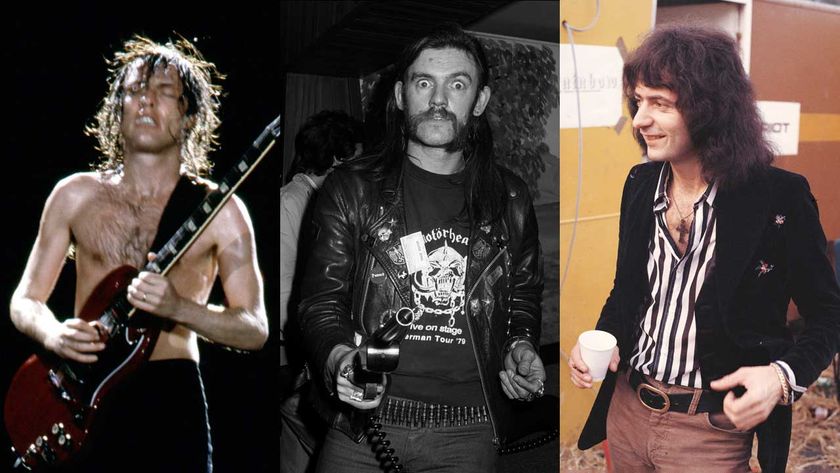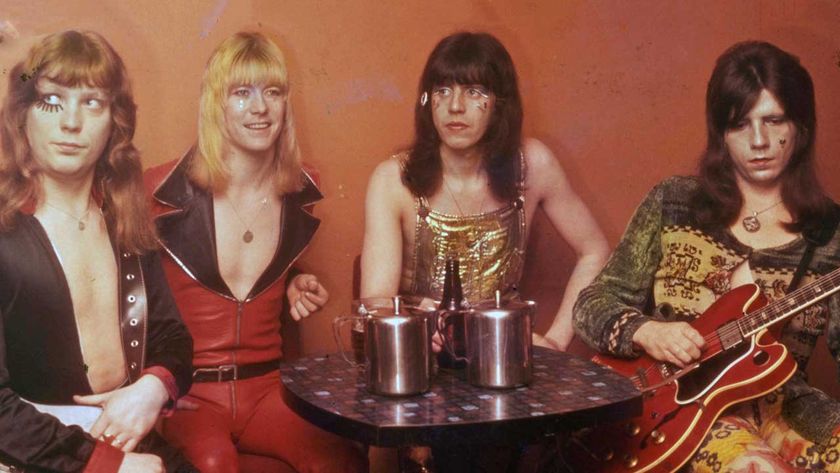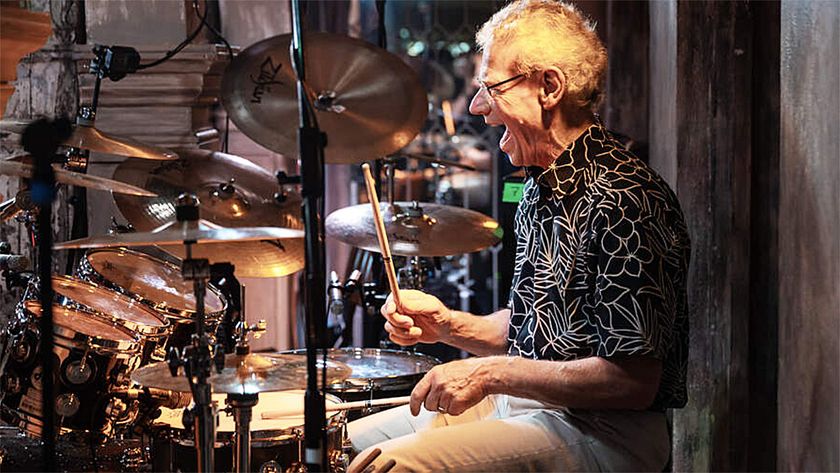After seven years in 'exile', the late Jeff Beck enjoyed another renaissance in 2010 with his Grammy-winning album Emotion & Commotion, followed by the Les Paul tribute Rock'N'Roll Party in 2011. Throw in the news of a reunion with Rod Stewart, and it was clearly a good time to speak with the late maestro. So we did.
Jeff Beck comes bounding into his manager's London office looking the same as ever, bar a few more years of experience as the guitar player's guitarist of choice etched into his craggy features.
Beck is evidently in the mood (his Together & Apart show with Eric Clapton last year delighted both sets of fans), and he’s fitting in the Rod Stewart collaboration with a US tour and the itch to get back into the studio.
Now 66, he says he’s still as keen as ever to pursue new ground, and, as he tells Classic Rock, he’s got plenty to be happy about in a year that looks certain to put him back at the centre of a music business he’s graced for more than 40 years.

You’ve just picked up another three Grammys: two for Emotion & Commotion, and one for the Imagine collaboration with Herbie Hancock and Pink. Do you enjoy attending these awards events?
It’s a networking profile thing. If you don’t go you won’t get talked about and you become invisible. Last year I went with Imelda May (singer on Jeff’s new album Rock’N’Roll Party) and I saw it through her eyes. Lady Gaga was swinging about on a JCB; it was a bit of a circus, nothing to do with music. But this year I was nominated for six awards so I thought I’d participate in the circus. It means someone is listening to the effort I’ve put into making my records. Once I went with a bunch of mates, convinced I was going to win. I realised I wasn’t when they stuck us up in the gods. And the envelope gets opened and it’s: “The winner is… Carlos Santana!”
What do you do with your awards?
I’ve got eight and they’re all on my mum’s piano, weighing it down. I get them for the most obscure tracks sometimes, and people say: “Never heard it.” But these [Grammys] are the Oscars of the music business. They might give the album sales a bit of a tweak.
You constantly change styles – classical, rockabilly, fusion… Are you a restless type?
Yeah, I am. I’ve got a fascination with musical sound and what that does to me. One minute I’m angry at some new rubbish, then I’m weeping buckets at Christine Johnson singing You’ll Never Walk Alone [in the 1956 Hollywood musical Carousel].
Why does that happen? Why do I get such a buzz out of Nessun Dorma, or Pavane by Ravel, and Mahler’s Fifth? The fun thing for a musician like me is I can go anywhere I want. I can play Puccini; I’m not tied down to a rock formula. People can’t expect me to be like Led Zep 2,3,4. I don’t do that. That isn’t fulfilling. I’m not doing Guns N’ Roses mark 20.
You’ve talked before about playing live with a full orchestra. How is that coming along?
I’ve done snippets, but I want the full-blown, 100-piece at the Royal Albert Hall, with French horn and the whole monty. I’d love to take that to a Madison Square Garden or a Hollywood Bowl. I’ll do it when my manager says someone has cancelled, get in there. Trouble with these big ideas if you have to book halls years in advance.
Do you remember July 3. 1973?
Christ yeah. The last night of the Ziggy Stardust And The Spiders From Mars tour. Bowie originally wanted me to be in the band but he got Mick Ronson, who he always said was his own Jeff Beck. I remember they were filming, and the cameras panned in on my wah-wah pedal during The Jean Genie and I was wearing these dirty white platform shoes. I went ballistic when they said they were using me in the film, so I refused to sign the release.
Bowie goes: “Oh, you might as well agree, they’re already showing a bootleg version at the Triple XXX theatres on 42nd Street, and you didn’t look any dafter than me.” In the end I agreed. The pitch of teenage screaming at that gig was unbelievable. I’d never experienced that. I recall it was someone’s birthday in the group, and I thought I was like a little mascot pressie. But actually Bowie is a big fan, so…
You would have looked good in face paint and a jumpsuit.
Nah. And I’m not a ‘joiner’, really. Pink Floyd wanted me but they didn’t have the nerve to pop the question. And then there’s The Rolling Stones [when they were looking for a replacement for Mick Taylor who quit in ’74]. I told them I don’t do auditions. And I wouldn’t have fitted in. I never had any regrets. I thought about it, but I had Billy Cobham and Jan Hammer in my head. I didn’t want to spend my life playing Brown Sugar. I think they’d probably made their best records by then, with Mick Taylor. He gave them a lot. A big old badge of sound.
I couldn’t deal with their looseness. I was rehearsing [with the Stones] and I hardly ever saw Mick Jagger. When he did arrive, someone else fucked off. I’m there to work, and they’re going: “Shall we pop over to Las Vegas, or Barbados?” No! I like to have bottled attention and discipline. Get the damn thing done, and then you can mess around. It was crazy.
Your new album is a tribute to the late guitar legend Les Paul. What does he mean to you?
A lot. Sadly he passed away and never got to hear us. It’s like a post- party. He was a profound influence on me when I was growing up. His records were treasured. I absorbed all his tonal variations. His music was memorable, not just a barbaric rock’n’roll thing. He had class. His guitar bends were delicious and the runs were fabulous.
Plus, in Mary Ford he had a singer so perfectly attuned that her pitching is always correct. Her voice stood out. As Imelda’s does on the tribute songs to them. That era reminds me of a time of innocence when you had a daily bombardment of new and exciting music. I was lost in all that. This was when even the idea of ever leaving my home in Surrey was a fantasy. All that music was the antidote to school. And owning the vinyl was also a great way of impressing the local schoolgirls.
This interview originally appeared in Classic Rock 157 (May 2011)
